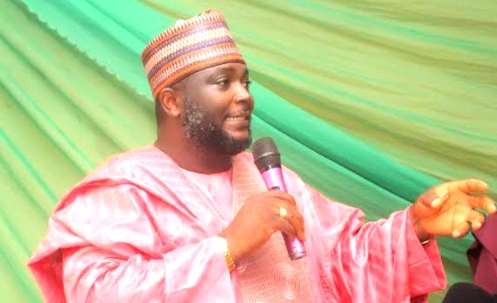The Suspension and Planned Return of Governor Siminalayi Fubara: A Setback for Nigerian Democracy?
The political landscape of Rivers State, Nigeria, has been marked by turbulence in recent times, particularly surrounding the suspension and planned return of Governor Siminalayi Fubara. The suspension, ordered by President Bola Tinubu on March 18, 2025, stemmed from a protracted political conflict between Governor Fubara and his predecessor, Nyesom Wike, a powerful figure in Rivers State politics. President Tinubu cited this ongoing crisis as the justification for the state of emergency, declaring that the escalating tensions threatened the stability of the region. The suspension not only removed Governor Fubara from office but also his deputy and the entire House of Assembly, a drastic measure reflecting the perceived gravity of the situation. Retired Vice Admiral Ibok-Ete Ibas was appointed as Sole Administrator, tasked with the significant challenge of restoring political equilibrium to the state.
The subsequent decision by Governor Fubara to return to office upon the expiration of his suspension on September 18, 2025, has sparked considerable controversy and drawn criticism from various quarters. Peter Ameh, the National Secretary of the Coalition of United Political Parties (CUPP), has been particularly vocal in his disapproval, characterizing the governor’s decision as a surrender that undermines the principles of democratic governance. Ameh argues that Fubara’s prioritization of returning to power over challenging the suspension sets a dangerous precedent, potentially weakening the foundations of democracy in Nigeria. He contends that the governor missed an opportunity to fight for the future of democratic processes in the country, opting instead for personal gain.
Ameh’s criticisms extend beyond the governor’s personal decision, encompassing the broader political context in which the suspension occurred. He alleges that state instruments were deployed against Fubara, effectively forcing him into submission. This, according to Ameh, paints a worrisome picture of the use of state power to quell dissent and consolidate political control. He underscores the importance of nurturing and protecting democratic institutions, even in their nascent stages, to ensure that future generations enjoy the full benefits of free and fair elections. Ameh’s concerns reflect a broader anxiety about the resilience of democratic processes in Nigeria, particularly in the face of political machinations and power struggles.
The situation in Rivers State highlights the fragility of democratic progress in a nation grappling with complex political dynamics. The conflict between Governor Fubara and his predecessor, Nyesom Wike, exemplifies the personalized nature of politics in Nigeria, where individual rivalries can escalate into broader crises, impacting governance and stability. The use of a state of emergency to address a political dispute raises questions about the proportionality of the response and the potential for such measures to be exploited for political purposes. The governor’s decision to return to office without challenging the legitimacy of his suspension further complicates the narrative, raising concerns about the erosion of democratic norms and the potential for impunity.
The events unfolding in Rivers State underscore the critical need for strengthening democratic institutions and promoting a culture of accountability. Ensuring free and fair elections, protecting the independence of the judiciary, and fostering respect for the rule of law are essential for consolidating democratic gains and preventing further erosion of democratic principles. The case of Governor Fubara serves as a cautionary tale, highlighting the vulnerability of democratic processes to political maneuvering and the importance of vigilance in safeguarding democratic values. It underscores the responsibility of political leaders, civil society organizations, and citizens to uphold the principles of democracy and challenge actions that undermine the integrity of the political system.
The long-term implications of the Rivers State political saga remain to be seen. However, it serves as a stark reminder of the ongoing challenges facing Nigerian democracy and the importance of continuous efforts to strengthen democratic institutions and promote a culture of accountability. The episode serves as a critical juncture, prompting reflection on the state of democratic governance in Nigeria and the need for concerted action to ensure that democratic principles are not sacrificed at the altar of political expediency. The future of democracy in Nigeria hinges on the ability of its citizens and leaders to uphold the values of transparency, accountability, and respect for the rule of law.














